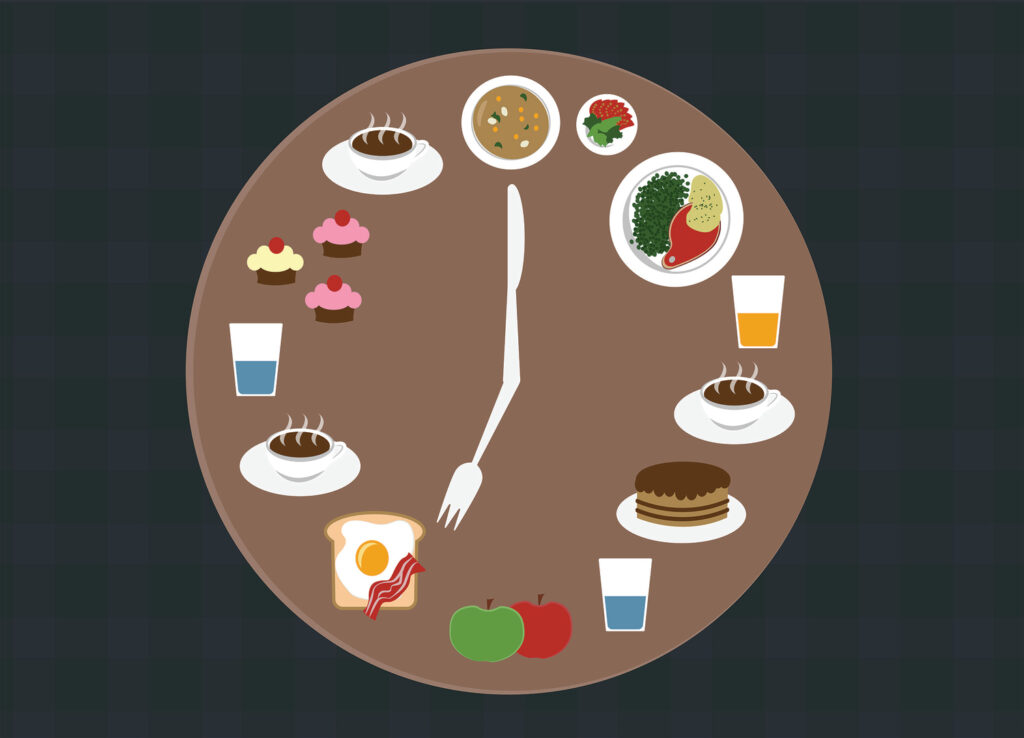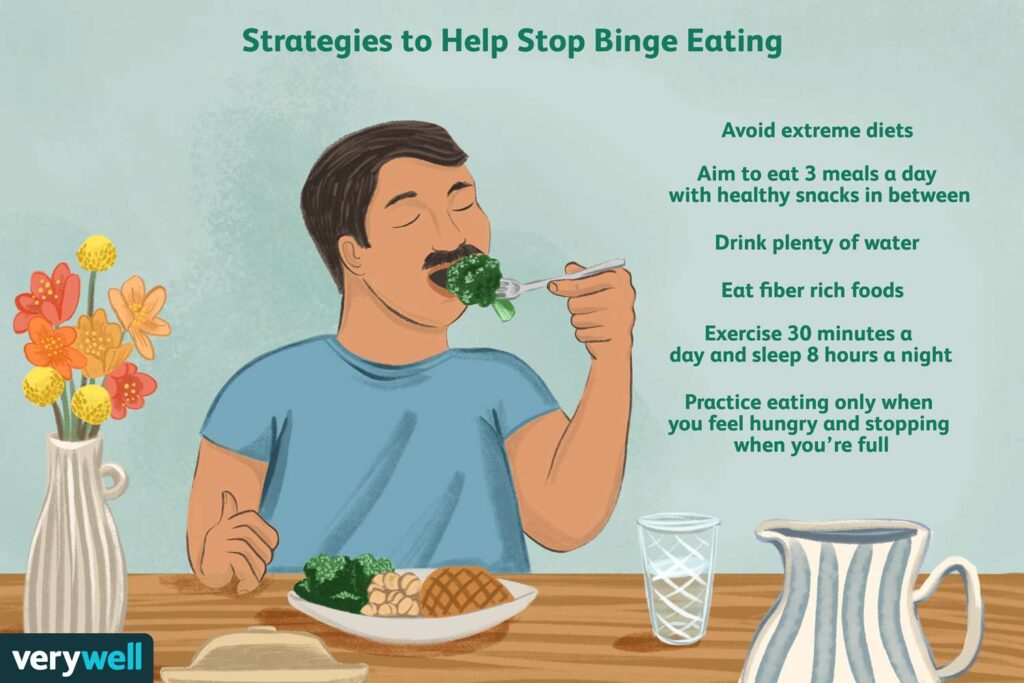
Strategies to Combat Overeating while Losing Weight
If you’re trying to lose weight, overeating can be a frustrating hurdle to overcome. Whether it’s due to restrictive diets, emotional triggers, or mindless eating, finding strategies to combat overeating is crucial for success. In this article, we’ll explore some effective techniques to help you take control of your eating habits and reach your weight loss goals. From identifying trigger foods to practicing mindful eating, these strategies will empower you to make healthier choices and establish a balanced relationship with food. And if you find yourself struggling to manage overeating, don’t hesitate to seek the guidance of a professional who can provide personalized support.
Table of Contents
ToggleUnderstanding Overeating
Overeating is a common struggle for people trying to lose weight. It is important to understand the causes and effects of overeating in order to effectively address this issue and make progress towards your weight loss goals.
Causes of overeating
There are several factors that can contribute to overeating. Restrictive diets and meal skipping can actually lead to overeating. When you restrict your food intake or skip meals, your blood sugar drops and your stress levels increase. This can trigger intense cravings and cause you to overeat when you finally do have a meal. Additionally, feeling deprived due to strict diet rules may lead to a loss of control around food, resulting in overeating.
Another factor that can cause overeating is the consumption of processed foods. Processed foods are often high in added sugars, unhealthy fats, and artificial additives. These foods are designed to be hyper-palatable, meaning they are engineered to make you want to eat more. This can lead to overeating and weight gain. In contrast, choosing whole foods over processed foods can help you feel satisfied and support your weight loss efforts.
Effects of overeating on weight loss
Overeating can have significant effects on your weight loss journey. Consuming excess calories beyond what your body needs can lead to weight gain, or make it more difficult to lose weight. Additionally, overeating can undermine your motivation and hinder your progress. It can be discouraging to feel like you have “failed” by overeating, which may lead to emotional eating and a cycle of overeating and guilt. Understanding the effects of overeating can help you stay motivated and make positive changes in your eating habits.
The Role of Diet in Combatting Overeating
When it comes to combatting overeating, your diet plays a crucial role. A balanced diet is key to managing your appetite and preventing overeating.
Importance of a balanced diet
A balanced diet is important for overall health and preventing overeating. It includes a variety of nutrient-dense foods from all food groups, such as fruits, vegetables, whole grains, lean proteins, and healthy fats. Consuming a balanced diet can help regulate your appetite, stabilize your blood sugar levels, and provide your body with the nutrients it needs to function properly. This can reduce cravings and prevent the urge to overeat.
Choosing whole foods over processed foods
As mentioned earlier, processed foods are often linked to weight gain and overeating. Opting for whole foods, on the other hand, can help you feel more satisfied and support your weight loss efforts. Whole foods are natural, unprocessed foods that are rich in nutrients and fiber. They include fruits, vegetables, whole grains, lean proteins, and nuts. These foods provide satiety and can help regulate your appetite, reducing the likelihood of overeating.
Avoiding restrictive diets
While it may be tempting to turn to restrictive diets for quick weight loss, they can actually backfire and lead to overeating. Restrictive diets can cause extreme hunger and feelings of deprivation, which often result in overeating. Instead of following strict rules and eliminating entire food groups, focus on creating a balanced and sustainable eating plan. This will help you nourish your body and prevent the desire to overeat.
Managing Emotions and Overeating
Emotional eating is a common trigger for overeating. It is important to identify your emotional triggers and develop alternative coping mechanisms to prevent overeating.
Identifying emotional triggers
Emotional eating is characterized by sudden food cravings triggered by emotions such as stress, boredom, anxiety, or loneliness. It is important to identify your personal emotional triggers for overeating. Reflect on your eating patterns and pay attention to the situations or emotions that tend to lead to overeating. By becoming aware of your triggers, you can take steps to address them and find healthier ways to deal with your emotions.
Alternative coping mechanisms
Instead of turning to food for comfort, it is helpful to develop alternative coping mechanisms. Find activities that provide you with stress relief, relaxation, or a sense of fulfillment. This could include engaging in hobbies, exercising, practicing mindfulness or meditation, journaling, or reaching out to a supportive friend or family member. By finding healthy ways to cope with your emotions, you can reduce the likelihood of turning to food and prevent overeating.
Seeking support
Support from others can be instrumental in managing emotions and preventing overeating. Reach out to friends, family members, or support groups who can provide encouragement and understanding. By sharing your struggles and seeking support, you can gain valuable insights, learn new strategies, and stay motivated on your weight loss journey.
Implementing Mindful Eating
Mindful eating is a powerful tool for preventing overeating and making healthier food choices. This approach involves being fully present in the moment and paying attention to your body’s sensations and thoughts surrounding food.
Eliminating distractions
One key aspect of mindful eating is eliminating distractions during meals. Turn off the TV, put away your phone, and create a calm eating environment. By focusing solely on your food and the act of eating, you can better tune in to your body’s hunger and fullness cues, preventing overeating.
Eating slowly and savoring food
Another important practice in mindful eating is eating slowly and savoring each bite. Take the time to chew your food thoroughly and pay attention to its taste and texture. Eating slowly allows your body to recognize feelings of fullness, preventing overeating. It also enhances your enjoyment of the food and promotes a healthier relationship with eating.
Examining food sensations
Mindful eating involves examining the sensations that food provides. Notice the colors, smells, and flavors of your meals. This helps you fully engage with your food and appreciate the nourishment it provides. By focusing on the sensory experience of eating, you are less likely to overeat and more likely to make healthier choices.
Checking in with your body
Throughout your meal, periodically check in with your body to assess your hunger and fullness levels. Pause and ask yourself how hungry or full you feel. This helps you avoid overeating by eating only until you reach a comfortable level of fullness. By listening to your body’s signals, you can develop a healthier relationship with food and prevent mindless overeating.
Expressing gratitude
Practicing gratitude is another important aspect of mindful eating. Take a moment before you eat to express gratitude for the food on your plate and the nourishment it provides. This helps shift your focus to appreciation and enjoyment, reducing the likelihood of overeating driven by negative emotions or mindless habits.
Strategies for Portion Control
Portion control is an effective strategy for preventing overeating. By implementing these strategies, you can manage your portion sizes and maintain a balanced diet.
Using smaller plates and bowls
An easy way to control portions is to use smaller plates and bowls. Research has shown that people tend to eat more when they are presented with larger plates or bowls, even if they are not hungry. By using smaller dishes, you can trick your mind into thinking you are consuming a full portion, even if the physical volume is smaller. This can help prevent overeating and promote healthy portion sizes.
Pre-portioning meals and snacks
Another effective strategy is pre-portioning your meals and snacks. Instead of eating directly from containers or packages, take the time to measure out appropriate serving sizes. This allows you to have better control over your portions and prevents mindless overeating. Consider using portion control containers or snack-size bags to help maintain appropriate portion sizes.
Practicing mindful portion control
In addition to using smaller plates and pre-portioning meals, practicing mindful portion control can help prevent overeating. This involves being aware of the recommended portion sizes for different food groups and adjusting your serving sizes accordingly. Use visual cues or measuring tools to ensure you are consuming appropriate amounts of each food group. By paying attention to your portion sizes, you can maintain a balanced diet and avoid overeating.
Creating a Supportive Environment
Creating a supportive environment can greatly contribute to your efforts in preventing overeating. By setting up your surroundings to support your weight loss goals, you can make healthier choices and stay on track.
Stocking your pantry with healthy options
One way to create a supportive environment is by stocking your pantry with healthy options. Remove or limit the presence of processed snacks and sugary treats that may trigger overeating. Instead, fill your pantry with nutritious foods such as fruits, vegetables, whole grains, and lean proteins. Having these healthy options readily available makes it easier to make nutritious choices and prevents the temptation to overeat unhealthy foods.
Limiting trigger foods
Another important step is to identify trigger foods that contribute to overeating and limit their presence in your environment. Trigger foods are those that you find difficult to control your portion sizes with or cause intense cravings. By minimizing the presence of these foods in your home or workplace, you can reduce the likelihood of overeating. Instead, focus on stocking your environment with nourishing foods that support your weight loss goals.
Involving friends and family in your weight loss journey
Including friends and family in your weight loss journey can provide valuable support and encouragement. Share your goals with your loved ones and ask for their support in creating a positive and healthy environment. By involving others, you can form a support system that keeps you motivated and accountable. This can contribute to your success in overcoming overeating and achieving your weight loss goals.
Practical Tips for Overcoming Overeating
In addition to the strategies mentioned above, there are several practical tips that can help you overcome overeating and establish healthier eating habits.
Planning meals and snacks in advance
One effective tip is to plan your meals and snacks in advance. Take the time to create a weekly meal plan and write a shopping list. This allows you to make intentional choices and ensures that you have nourishing foods readily available. By planning ahead, you can avoid impulsive food decisions and prevent overeating.
Keeping a food journal to track eating patterns
Keeping a food journal can be a powerful tool for identifying trigger foods and emotional eating patterns. Write down everything you eat and drink, as well as the emotions or situations surrounding your eating. This helps you become more aware of your eating habits and provides insights into your overeating triggers. Use this information to make positive changes in your eating patterns.
Engaging in regular physical activity
Regular physical activity is not only important for weight loss, but it can also help you manage your appetite and prevent overeating. Engage in activities that you enjoy, whether it’s walking, cycling, swimming, or taking a fitness class. Exercise releases endorphins, improves mood, and reduces stress, all of which can help prevent emotional eating and overeating.
Getting enough sleep
Getting adequate sleep is often overlooked but plays a crucial role in managing your appetite and preventing overeating. Lack of sleep can disrupt hunger and fullness hormones, leading to increased cravings and a higher likelihood of overeating. Aim for 7-8 hours of quality sleep each night to support your weight loss efforts and minimize the risk of overeating.
Potential Medical Causes of Overeating
In some cases, overeating may be caused by underlying medical conditions. It’s important to be aware of these potential causes and seek medical advice if you suspect they may be contributing to your overeating.
Hormonal imbalances
Hormonal imbalances, such as an underactive thyroid or polycystic ovary syndrome (PCOS), can affect your appetite and lead to overeating. These conditions can cause changes in hunger and fullness hormones, making it difficult to regulate your appetite. If you suspect that a hormonal imbalance may be contributing to your overeating, consult with a healthcare professional for further evaluation and appropriate treatment.
Medication side effects
Certain medications, such as antidepressants or corticosteroids, may have side effects that include increased appetite or cravings. If you are taking medication and experiencing excessive hunger or overeating as a side effect, speak to your healthcare provider. They may be able to suggest alternative medications or strategies to manage your appetite.
Underlying mental health conditions
Underlying mental health conditions, such as depression or anxiety, can contribute to overeating as a form of emotional coping. If you suspect that your overeating is related to a mental health condition, it is important to seek professional help. A mental health expert can provide appropriate diagnosis, treatment, and support to help you manage your mental health and overcome overeating.
When to Seek Professional Help
While implementing the strategies outlined above can be beneficial, there may be instances where professional help is necessary to address overeating.
Consulting a registered dietitian
If overeating persists despite your efforts, seeking guidance from a registered dietitian can be valuable. A dietitian can assess your eating patterns, provide tailored advice, and help you develop a personalized meal plan to manage overeating. They can also address any underlying nutrition concerns and assist you in reaching your weight loss goals in a healthy and sustainable manner.
Seeking assistance from a mental health expert
If overeating is linked to emotional triggers or underlying mental health conditions, it is important to seek assistance from a mental health expert. A psychologist, therapist, or counselor can provide the necessary support to address emotional eating, develop coping mechanisms, and manage any mental health concerns. They can help you navigate the complex relationship between emotions and food, and provide you with the tools necessary to overcome overeating.
In conclusion, understanding overeating is the first step towards effectively managing it. By examining the causes and effects of overeating, implementing mindful eating practices, practicing portion control, creating a supportive environment, and incorporating practical tips, you can overcome overeating and make progress towards your weight loss goals. Additionally, being aware of potential medical causes and seeking professional help when necessary can provide further support on your journey to a healthier relationship with food. Remember, progress takes time and patience, but with the right strategies and support, you can overcome overeating and achieve your desired weight loss.
Strategies to combat overeating while losing weight. Discover effective techniques to take control of eating habits and reach weight loss goals.




